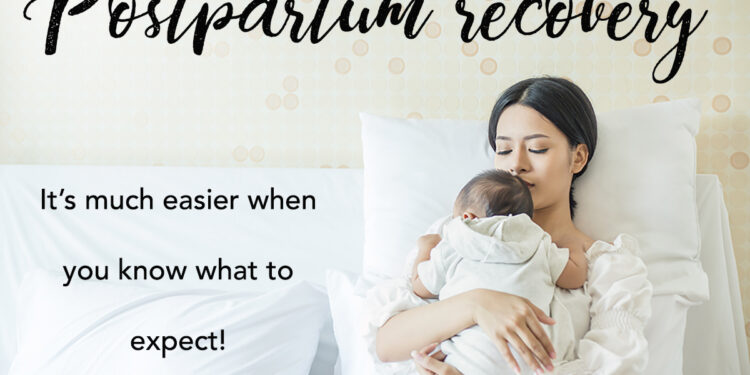The postpartum period, or the fourth trimester, is a transformative time that often brings a mix of emotions, from joy and excitement to exhaustion and vulnerability. After months of pregnancy and the challenges of childbirth, your body and mind need time to heal and adapt to a new chapter of motherhood. Proper postpartum recovery is essential not only for physical healing but also for emotional and mental well-being. This blog will guide new moms through essential postpartum recovery tips, offering practical advice to help navigate this unique and sometimes overwhelming phase.
The Importance of Postpartum Care: The weeks and months following childbirth can be intense as you adjust to life with a newborn. It’s crucial to prioritize recovery during this time to promote healing and prevent complications. Your body has undergone significant changes, and without appropriate care, fatigue and stress can take a toll on your well-being. This section will discuss why dedicating time and attention to postpartum care is vital and how it sets the stage for a healthy transition into motherhood.
Physical Recovery Tips:
- Rest and Sleep: While sleep can be scarce with a newborn, rest is one of the most important aspects of postpartum recovery. Short naps when the baby is sleeping, enlisting the help of a partner or family member, and not hesitating to ask for assistance can make a significant difference. We’ll share practical strategies for maximizing rest when full sleep cycles aren’t possible.
- Nutrition and Hydration: Your body requires extra nutrients to support healing and breastfeeding, if applicable. Eating balanced meals with plenty of protein, healthy fats, whole grains, and fresh fruits and vegetables can aid recovery and energy levels. We’ll highlight postpartum-friendly foods and hydration tips to support milk production and overall wellness.
- Pelvic Floor and Core Exercises: After childbirth, your pelvic floor muscles and core can feel weakened. Gentle exercises, such as Kegels and postpartum-safe abdominal stretches, can help rebuild strength. We’ll outline beginner-friendly exercises to help restore your core and pelvic floor health without risking injury.
- Managing Pain and Discomfort: Whether you’ve had a vaginal birth or a C-section, postpartum pain management is essential. This section will cover the best practices for pain relief, from perineal care and using cold packs to managing C-section incision discomfort. We’ll also discuss natural pain relief options such as warm baths and essential oils.
Mental and Emotional Recovery: Postpartum recovery isn’t just about the physical body—it’s also about nurturing your mental health. The hormonal changes that occur after birth, combined with new responsibilities and potential sleep deprivation, can make emotional well-being more challenging to maintain. We’ll address:
- Baby Blues vs. Postpartum Depression: It’s normal to experience a range of emotions after childbirth, but understanding the difference between temporary baby blues and more serious postpartum depression is crucial. We’ll share how to recognize the signs of postpartum depression and when to seek professional support.
- Building a Support System: Isolation can make postpartum recovery harder, so having a network of support is essential. This can include friends, family, or joining a new moms’ group. We’ll offer suggestions for connecting with others and finding a sense of community during this period.
- Self-Care and Time for Yourself: Even just 10 minutes a day of self-care can make a big difference in your emotional resilience. We’ll explore small, manageable self-care ideas that new moms can incorporate, from journaling to meditation.
Breastfeeding and Lactation Support: For moms who choose to breastfeed, lactation support can be invaluable in the early days of nursing. We’ll discuss tips for comfortable breastfeeding, the benefits of seeing a lactation consultant if needed, and how to manage common issues like soreness or latching difficulties.
Postpartum Appointments and When to Seek Help: Follow-up appointments with your healthcare provider are an essential part of ensuring a smooth recovery. We’ll outline what to expect during postpartum checkups and signs that might indicate complications, such as excessive bleeding, fever, or infection, so you know when to reach out for help.
Balancing New Responsibilities: Caring for a newborn can feel all-consuming, but it’s important to find balance and avoid burnout. We’ll discuss ways to share responsibilities with a partner, delegate tasks, and carve out time for personal breaks to recharge your energy and mental state.
Tips for Gradual Return to Exercise and Movement: Returning to a more active lifestyle should be done with care. We’ll guide moms on when and how to ease back into physical activity safely, emphasizing low-impact movements that support recovery rather than hinder it.
Final Thoughts: Postpartum recovery is a journey that requires patience, self-compassion, and support. Every mom’s experience is unique, so understanding that recovery takes time and will look different for everyone is key. By prioritizing both your physical and mental health, you can pave the way for a more confident and enjoyable transition into motherhood. Dive into this comprehensive guide to empower yourself with practical, comforting advice and navigate your postpartum journey with grace and resilience.












